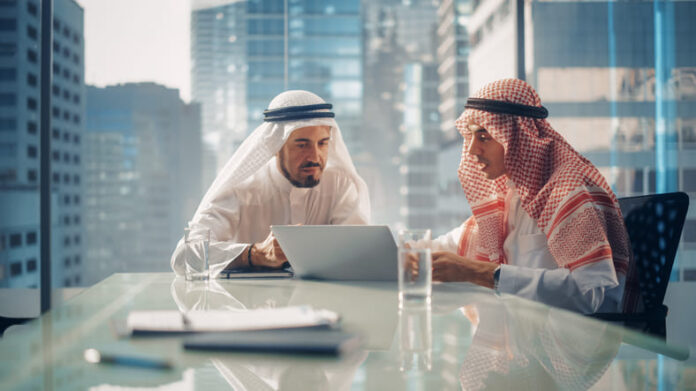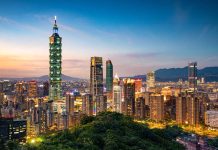Dubai is a city known for its luxurious lifestyle, modern architecture, and vibrant business environment. However, the city’s location in the heart of the Arabian Desert presents unique challenges, particularly when it comes to maintaining healthy workplaces. The extreme heat, high levels of dust, and low humidity can all take a toll on the workplace and the health of employees. In this blog, we will look at different strategies to create and maintain healthy workplaces in Dubai, addressing the specific challenges posed by the desert environment.
1. Understanding the Desert Challenges
Dubai’s desert climate is characterised by intense heat. The city experiences frequent dust storms, which can lead to poor air quality both indoors and outdoors. Low humidity levels are also common, which can cause discomfort and affect the health of employees.
- Heat: The extreme heat in Dubai can make it hard to keep the indoor temperature comfortable, causing people to depend more on air conditioning systems. High temperatures cause heat-related illnesses, like exhaustion or heat stroke.
- Dust: Dust storms are a regular occurrence in Dubai, and they can carry fine particles of sand and other pollutants into workplaces. This can affect indoor air quality, exacerbate respiratory conditions, and make it difficult to keep workspaces clean.
- Low Humidity: Low humidity can cause dried skin, and make your eyes and throat feel irritated and other health issues. It can also affect the longevity of office equipment and furniture, leading to increased wear and tear.
2. Implementing Effective Cooling Solutions
Given the extreme heat in Dubai, it is essential to have effective cooling systems in place to keep your indoor space comfortable and healthy. However, simply relying on air conditioning is not enough. There are several strategies that can help optimise cooling while also ensuring energy efficiency.
- Efficient Air Conditioning: Investing in high-quality, energy-efficient air conditioning units is essential for maintaining a comfortable indoor temperature. These systems should be regularly serviced to ensure they are operating at peak efficiency. Additionally, consider installing programmable thermostats to regulate the temperature based on occupancy and time of day.
- Proper Insulation: Proper insulation in the building can help lower the amount of heat that enters the workspace, thereby reducing the reliance on air conditioning. Insulating windows, walls, and roofs can significantly lower indoor temperatures and save on energy costs.
- Shade and Window Treatments: Using shades, blinds, or reflective window films can help block out the intense desert sun and reduce heat gain inside the workplace.
- Natural Ventilation: While air conditioning is necessary, incorporating natural ventilation whenever possible can help improve air quality and reduce energy consumption. This can be achieved by designing the workplace layout to allow for cross-ventilation or by using windows that can be opened during cooler times of the day.
3. Enhancing Indoor Air Quality
Maintaining good indoor air quality is necessary to ensure employees stay healthy and well, especially in a city like Dubai, where dust and pollutants are prevalent. Bad air quality can cause many health problems, including respiratory problems, allergies, and reduced productivity.
- Air Filtration Systems: Installing high-quality air filtration systems can help remove dust, pollen, and other airborne particles from the indoor environment.
- Regular Cleaning: Regular cleaning of the workplace is important to keep dust and allergens away. This includes vacuuming carpets, dusting surfaces, and cleaning air ducts. AC duct cleaning in Dubai can be quite helpful in making sure that the air conditioning system is not circulating dust and pollutants throughout the workspace.
- Indoor Plants: Incorporating indoor plants into the workplace can make the air better by taking in carbon dioxide and giving out oxygen.
- Humidity Control: Maintaining an appropriate level of humidity in the workplace is important for comfort and health. Using humidifiers can help counteract the dryness caused by air conditioning and low outdoor humidity, making the indoor environment more pleasant.
4. Creating a Comfortable Work Environment
A comfortable work environment goes beyond temperature control and air quality. It also involves designing a workspace that promotes physical and mental well-being.
- Ergonomic Furniture: Providing ergonomic furniture, like adjustable chairs and desks, can lower the chances of muscle and joint problems and make employees more comfortable. This is especially important in Dubai, where long working hours are common.
- Lighting: Good lighting is important for creating a comfortable and productive workspace. Natural light is preferable, but where this is not possible, use bright, energy-efficient lighting that mimics daylight. Avoid harsh fluorescent lights that can cause eye strain and fatigue.
- Acoustic Comfort: Noise can be a major source of stress in the workplace. Incorporating soundproofing materials, such as carpets, acoustic panels, and curtains, can help reduce noise levels and create a more peaceful environment.
- Break Areas: Providing comfortable break areas where employees can relax and recharge is important for maintaining productivity and well-being. These areas should be designed to offer a respite from the hustle and bustle of the workplace, with comfortable seating, greenery, and amenities such as coffee machines or water dispensers.
5. Promoting Health and Wellness Initiatives
Encouraging health and wellness programs at work is important for keeping employees healthy and productive. In Dubai, where the pace of life can be fast and demanding, it is important to encourage employees to take care of their both physical and mental health.
- Fitness Programs: Encourage employees to stay active by offering fitness programs or gym memberships. Many workplaces in Dubai have on-site gyms or fitness classes during lunch breaks.
- Healthy Eating: Providing access to healthy food options at work can positively affect an employee’s health. Consider offering fresh fruits, salads, and other nutritious snacks in the office cafeteria or break room. In addition, promoting the importance of hydration, especially in Dubai’s hot climate, is essential.
- Mental Health Support: Mental health is also as important as physical health, and providing support for employees’ mental well-being is crucial. This can include offering counselling services, mental health workshops, or stress management programs.
- Work-Life Balance: Encouraging a good balance between work and personal life is important for preventing burnout and ensuring long-term employee satisfaction. Encourage employees to take regular breaks, manage their workload effectively, and avoid excessive overtime.
6. Sustainable Workplace Practices
Incorporating sustainable practices into the workplace is not only good for the environment but also contributes to the health and well-being of employees. Sustainability can be achieved through various initiatives, from energy conservation to waste reduction.
- Energy Efficiency: Implementing energy-efficient practices, such as using LED lighting, energy-saving appliances, and motion sensors, can reduce the workplace’s carbon footprint and lower energy costs. Additionally, educating employees on energy conservation habits, such as turning off lights and equipment when not in use, can further promote sustainability.
- Waste Reduction: Encouraging waste reduction and recycling in the workplace can help minimise the impact on the environment. Provide recycling bins for paper, plastic, and other materials, and consider implementing a paperless office policy. Cutting down on single-use plastics like throwaway cups and cutlery can also contribute to a more sustainable workplace.
- Water Conservation: In a desert city like Dubai, water conservation is particularly important. Implementing water-saving practices, such as using low-flow faucets and fixtures, can help reduce water usage.
- Green Building Standards: Design or renovate workplaces to meet green building standards, such as LEED certification.
7. Emergency Preparedness and Safety
Making sure employees are safe at work is very important, especially in a city like Dubai, where environmental conditions can pose unique challenges. Having a comprehensive emergency preparedness plan in place can help protect employees and minimise risks.
- Fire Safety: Given the high temperatures in Dubai, fire safety is a critical concern. Ensure that the workplace is equipped with fire alarms, extinguishers, and sprinkler systems. Regular fire drills and safety training can help employees respond effectively in case of an emergency.
- First Aid: Giving employees first aid training and keeping first aid kits fully stocked at work are essential for addressing minor injuries and medical emergencies. In addition, consider offering CPR and AED (automated external defibrillator) training to employees.
- Evacuation Plans: Develop and regularly update an evacuation plan that accounts for various scenarios, such as fire, earthquake, or dust storms. Ensure that employees are familiar with the plan and conduct regular evacuation drills to practise.
- Health and Safety Compliance: Ensure that the workplace follows all the necessary health and safety rules, including those specific to Dubai. This may involve regular inspections, risk assessments, and adherence to safety protocols.
8. Embracing Technology in the Workplace
Technology plays a vital role in creating a healthy and efficient workplace. In Dubai, where businesses are constantly evolving, embracing the latest technological advancements can help improve workplace health and productivity.
- Smart Building Technology: Implementing smart building technology can enhance the efficiency and comfort of the workplace. This includes automated lighting and temperature control systems, occupancy sensors, and energy management systems. These technologies can help lower energy consumption and improve air quality at the work environment.
- Remote Work Solutions: Providing employees with the tools and technology needed to work remotely can help promote work-life balance and reduce the stress associated with commuting in Dubai’s busy cityscape.
- Health Monitoring: Encouraging the use of fitness trackers and smartwatches can promote a healthier lifestyle and help employees stay on top of their fitness goals.
9. Cultural Sensitivity and Inclusivity
Dubai is a diverse city with a multicultural workforce. Creating an inclusive and culturally sensitive workplace is essential for fostering a positive and healthy work environment.
- Cultural Awareness Training: Providing cultural awareness training can help employees understand and respect the diverse backgrounds of their colleagues.
- Inclusive Policies: Implementing inclusive workplace policies, such as flexible prayer times and holidays for different cultural and religious practices, can help create a more inclusive and supportive environment.
- Celebrating Diversity: Encourage the celebration of cultural diversity in the workplace by organising events, workshops, or team-building activities that highlight different cultures and traditions.
10. Continuous Improvement and Feedback
Keeping a workplace healthy is something that needs regular attention that requires continuous improvement and feedback from employees. Regularly assessing the workplace environment and seeking inputs. Employees can help find areas that need improvement and make sure that the workplace remains healthy and productive.
- Employee Surveys: Regularly survey employees to collect feedback about workplace conditions, health and wellness initiatives, and overall satisfaction.
- Health and Safety Audits: Regular health and safety audits can help find possible dangers and make sure that the workplace complies with all relevant regulations.
- Employee Engagement: Encourage employee engagement in health and wellness initiatives by creating committees or groups that focus on promoting a healthy workplace.
Conclusion
Creating and maintaining a healthy workplace in Dubai needs a proper plan that tackles the specific challenges posed by the desert environment. By implementing effective cooling solutions, enhancing indoor air quality, promoting health and wellness, and embracing sustainable steps, businesses can build a workplace that supports the well-being of their employees. By taking these steps, businesses in Dubai can create a workplace that not only supports their employees but also supports their health, productivity, and overall satisfaction, that is essential for long-term success.









